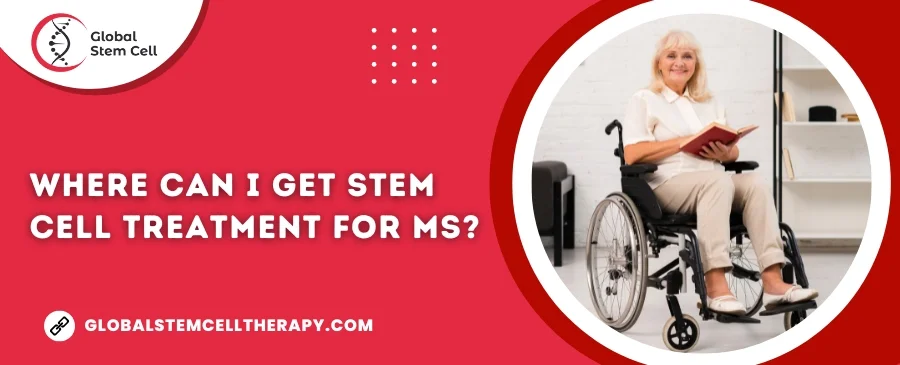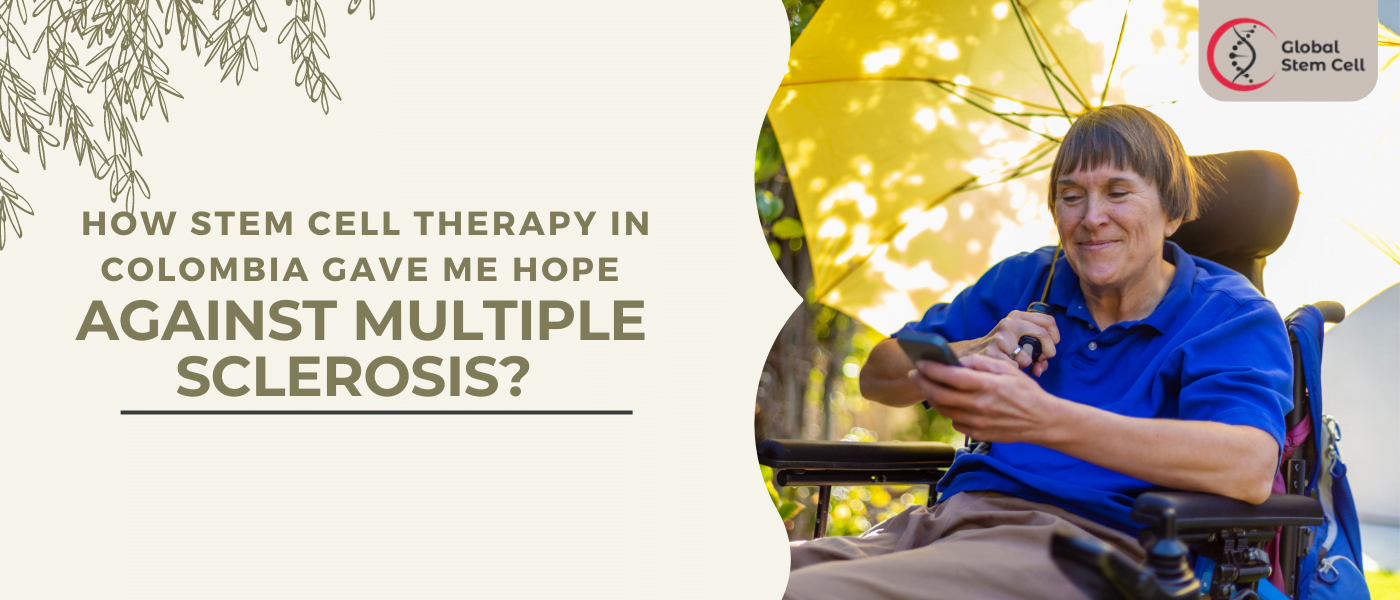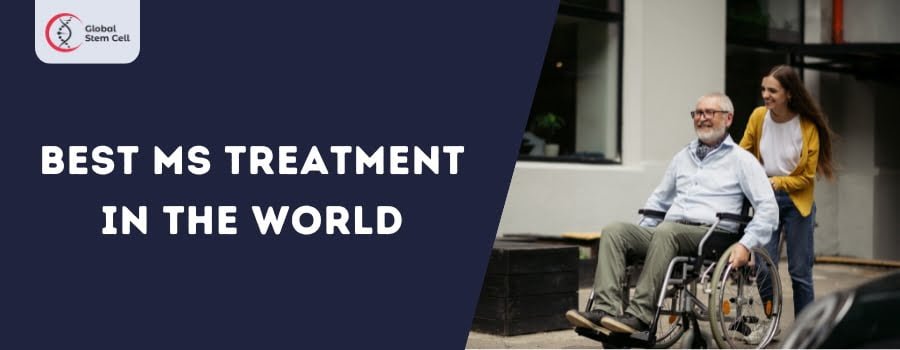
Exploring Options for Stem Cell Treatment for Multiple Sclerosis
Contenido
In a world where traditional treatments for Multiple Sclerosis (MS) often fall short of providing long-lasting relief, the realm of medical innovation is opening up new possibilities. Terapia con células madre, with its promise of regeneration and immune system modulation, has emerged as a beacon of hope for individuals living with MS.
As the limitations of conventional treatments become more apparent, the search for effective alternatives has intensified. This blog post aims to shed light on a transformative avenue: stem cell treatment for MS. By exploring where one can access this cutting-edge therapy, we aim to equip patients and their families with the knowledge they need to make informed decisions about their health and well-being.
As the quest for improved quality of life gains momentum, understanding the landscape of stem cell treatment options becomes more critical than ever before.
Understanding Multiple Sclerosis
Multiple sclerosis (MS) is a chronic neurological disorder that affects the central nervous system, including the brain and spinal cord. It is characterized by the immune system mistakenly attacking the protective covering of nerve fibers called myelin. This results in communication disruptions between the brain, spinal cord, and other parts of the body. Here’s an overview of MS types, causes, diagnosis, and symptoms:
Types of Multiple Sclerosis
There are several different types of multiple sclerosis (MS), each with its own distinct characteristics in terms of disease progression and symptom patterns. The classification of MS types has evolved over time, and as of my last update in September 2021, the following types were recognized:
- Relapsing-Remitting MS (RRMS): This is the most common form of MS. People with RRMS experience clearly defined relapses or exacerbations, during which new symptoms appear or existing ones worsen. These relapses are followed by periods of partial or complete remission, where the symptoms improve or disappear.
- Secondary Progressive MS (SPMS): Many individuals with RRMS eventually transition to SPMS. In SPMS, there is a gradual worsening of neurological function over time, with or without superimposed relapses and remissions. The disease becomes more progressive and less characterized by relapses.
- Primary Progressive MS (PPMS): In PPMS, there is a steady progression of disability from the onset of the disease, without significant relapses or remissions. This form is less common than RRMS.
- Progressive-Relapsing MS (PRMS): This type is characterized by a steady progression of disability from the beginning, with occasional relapses and temporary improvements. PRMS is rare.
Causes of Multiple Sclerosis
The exact cause of multiple sclerosis is still not fully understood, but it is believed to result from a combination of genetic, environmental, and immunological factors. Some theories suggest that a genetic predisposition, viral infections, and an abnormal immune response play a role in triggering the disease.
Diagnosis of Multiple Sclerosis
Diagnosing MS can be challenging as its symptoms can mimic other neurological conditions. A diagnosis is typically made through a combination of medical history, physical examinations, and various diagnostic tests. These may include:
- Neurological Examination: A neurologist will assess reflexes, coordination, strength, and other neurological functions to identify abnormalities.
- Magnetic Resonance Imaging (MRI): MRI scans can detect areas of myelin damage (lesions) in the central nervous system. These lesions can help confirm the diagnosis.
- Cerebrospinal Fluid Analysis: A lumbar puncture (spinal tap) can be performed to analyze the cerebrospinal fluid for abnormalities, such as elevated levels of certain immune cells and proteins.
- Evoked Potentials: These tests measure the electrical signals produced by the nervous system in response to stimuli. They can help identify slowed nerve transmission.
- Blood Tests: Blood tests may be done to rule out other conditions and evaluate for markers associated with MS.
Symptoms of Multiple Sclerosis
The symptoms of multiple sclerosis can vary widely among individuals and may change over time. Common symptoms include:
- Fatigue: This is one of the most common and debilitating symptoms of MS.
- Vision Problems: Blurred or double vision, eye pain, and partial or complete vision loss (usually in one eye) can occur.
- Muscle Weakness and Spasms: Weakness, numbness, or tingling in the limbs, as well as muscle spasms and coordination problems, are common.
- Balance and Coordination Issues: Problems with balance and coordination can lead to difficulty walking and maintaining stability.
- Sensory Disturbances: Sensory changes such as numbness, tingling, or pain can occur.
- Cognitive Changes: MS can affect memory, concentration, and problem-solving abilities.
- Bladder and Bowel Dysfunction: Issues with bladder control and bowel function can arise.
- Emotional and Mood Changes: Depression, anxiety, and mood swings can be associated with MS.
- Speech and Swallowing Problems: Some individuals may experience difficulties with speech and swallowing.
Tratamiento con células madre para la esclerosis múltiple
As the limitations of traditional approaches to Multiple Sclerosis (MS) treatment become more apparent, the spotlight is increasingly turning toward innovative strategies. Stem cell therapy, with its potential to harness the body’s own regenerative capabilities and modulate the immune system, has emerged as a beacon of hope for MS patients seeking a more comprehensive solution.
Types of Stem Cells Used in MS Treatment
Two prominent types of stem cells are commonly explored in MS treatment:
- Hematopoietic Stem Cells (HSCs): These stem cells are derived from bone marrow or peripheral blood and have the ability to give rise to various blood cell types. In the context of MS, HSCs can be used to “reset” the immune system by undergoing transplantation after high-dose chemotherapy. This approach aims to halt the autoimmune attack responsible for myelin damage.
- Mesenchymal Stem Cells (MSCs): Found in various tissues such as bone marrow and adipose tissue, MSCs possess anti-inflammatory properties and can regulate immune responses. They are believed to exert their effects by releasing factors that promote tissue repair and suppress immune system dysfunction. MSCs have gained attention for their potential to alleviate MS symptoms and slow disease progression.
Best Countries for Stem Cell Treatment for MS in the World
Stem cell treatments are a rapidly evolving field of medicine with applications for various conditions. The “best” countries for stem cell treatment can vary based on factors such as the specific condition being treated, the type of stem cell therapy, the regulatory environment, the expertise of medical professionals, and the overall quality of healthcare infrastructure.
Stem Cell Treatment for MS in United States
Stem cell therapy has gained significant attention as a potential treatment option for multiple sclerosis (MS), a chronic autoimmune disease that affects the central nervous system. In the United States, researchers and medical professionals are exploring the use of stem cells to mitigate MS symptoms, promote tissue repair, and potentially halt disease progression. While still considered an area of active research, stem cell treatments for MS have shown promise in preclinical and clinical studies.
Best Regenerative Medicine Clinics in United States
[svc_post_layout grid_link_target=”nw” svc_excerpt_length=”” hide_showmore=”yes” dexcerpt=”yes” dcategory=”yes” dmeta_data=”yes” dsocial=”yes” dpost_popup=”yes” dimg_popup=”yes” dfeatured=”yes” query_loop=”size:3|order_by:date|order:DESC|post_type:stem-cell-centers|by_id:486056,484411,487056″ line_color=”#dd3333″]
Stem Cell Treatment for MS in Mexico
In recent years, Mexico has emerged as a destination for individuals seeking alternative treatments for multiple sclerosis (MS), including stem cell therapy. Stem cell clinics in Mexico offer various approaches, such as autologous stem cell transplantation and mesenchymal stem cell infusion, with the aim of addressing MS symptoms and potentially improving patients’ quality of life. While some patients report positive outcomes and anecdotal improvements in their condition, it’s important to note that the safety, efficacy, and regulation of these treatments can vary widely.
Best Stem Cell Clinics for MS in Mexico
[svc_post_layout grid_link_target=”nw” svc_excerpt_length=”0″ hide_showmore=”yes” dexcerpt=”yes” dcategory=”yes” dmeta_data=”yes” dsocial=”yes” dpost_popup=”yes” dimg_popup=”yes” dfeatured=”yes” query_loop=”size:6|order_by:date|order:DESC|post_type:stem-cell-centers|by_id:486842,484411,479569,479250,486570,477494″ line_color=”#dd3333″]
Stem Cell Therapy for MS in India
In India, stem cell therapy has emerged as a promising avenue for addressing the challenges posed by multiple sclerosis (MS), a chronic autoimmune disorder affecting the central nervous system. Medical professionals and researchers in India are actively exploring the potential of stem cells to offer relief from MS symptoms, stimulate neural repair, and potentially modify disease progression. Various types of stem cells, including hematopoietic stem cells (HSCs) and mesenchymal stem cells (MSCs), are being investigated for their ability to modulate the immune response and promote tissue regeneration.
Best Stem Cell Clinics for MS in India
[svc_post_layout grid_link_target=”nw” svc_excerpt_length=”” hide_showmore=”yes” dexcerpt=”yes” dcategory=”yes” dmeta_data=”yes” dsocial=”yes” dpost_popup=”yes” dimg_popup=”yes” dfeatured=”yes” query_loop=”size:3|order_by:date|order:DESC|post_type:stem-cell-centers|by_id:479544,486080″ line_color=”#dd3333″]
Stem Cell Therapy for MS in Germany
Germany has emerged as a significant player in the research and development of stem cell therapy for multiple sclerosis (MS). With a strong emphasis on cutting-edge medical technologies and research, German medical institutions and clinics have been at the forefront of investigating the potential of stem cells in treating MS.
Best Stem Cell Clinics for MS in Germany
[svc_post_layout grid_link_target=”nw” svc_excerpt_length=”” hide_showmore=”yes” dexcerpt=”yes” dcategory=”yes” dmeta_data=”yes” dsocial=”yes” dpost_popup=”yes” dimg_popup=”yes” dfeatured=”yes” query_loop=”size:3|order_by:date|order:DESC|post_type:stem-cell-centers|by_id:478849″ line_color=”#dd3333″]
Stem Cell Therapy for MS in Colombia
In the captivating landscape of Colombia, a ray of hope shines for those battling multiple sclerosis (MS). Stem cell therapy, a cutting-edge approach, holds the promise of alleviating the burdensome effects of this autoimmune condition. As the Colombian medical community dives into the realm of regenerative medicine, individuals with MS find themselves at the forefront of a potentially transformative treatment journey.
Best Stem Cell Clinics for MS in Colombia
[svc_post_layout grid_link_target=”nw” svc_excerpt_length=”” hide_showmore=”yes” dexcerpt=”yes” dcategory=”yes” dmeta_data=”yes” dsocial=”yes” dpost_popup=”yes” dimg_popup=”yes” dfeatured=”yes” query_loop=”size:3|order_by:date|order:DESC|post_type:stem-cell-centers|by_id:485604″ line_color=”#dd3333″]
Patient Testimonial about Stem Cell Treatment for Multiple Sclerosis
If you or a loved one are seeking advanced treatment options for multiple sclerosis, consider the possibilities offered by stem cell therapy. Contact us today to learn more about stem cell treatment options for MS and find the right medical partner to guide you towards a brighter future.






